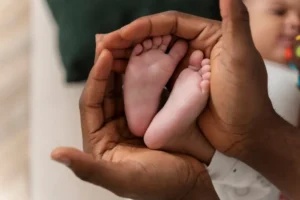The recent freeze on U.S. funding to the World Health Organization (WHO) and USAID has sent ripples across the global development landscape, leaving institutions like the World Bank, the United Nations (UN), and the International Monetary Fund (IMF) to bear the burden of filling the gaps. As Africa continues to grapple with economic vulnerabilities, health crises, and infrastructural deficits, these global institutions now face a formidable challenge:maintaining momentum in the continent’s development agenda without the financial backing traditionally provided by the United States.
World Bank: Expanding Financial Support Amid Budget Strains
The World Bank has long been a pillar in Africa’s development, providing financial aid for infrastructure, education, healthcare, and economic growth. However, with USAID’s funding freeze, the institution faces increasing demands from African governments seeking alternative funding sources. Many projects previously supported by U.S. aid now require World Bank intervention, stretching its resources and raising concerns about loan sustainability.
With many African nations already facing high debt burdens, the World Bank must navigate a delicate balance: ensuring continued support while avoiding the exacerbation of economic instability. Expanded lending programs and concessional loans may be necessary, but these come with risks, including increased financial dependency and possible austerity measures in borrowing nations.
United Nations: Mobilizing Resources in the Face of Funding Shortfalls
The UN and its various agencies, including UNICEF, WHO, and UNDP, are at the forefront of Africa’s humanitarian and development efforts. The U.S. freeze on WHO funding has already disrupted health programs, including vaccination campaigns and emergency disease response initiatives.
To counter these setbacks, the UN is now actively seeking alternative funding from European nations, philanthropic organizations, and emerging economies like China and India. However, mobilizing such resources in a short timeframe remains a challenge, especially as donor fatigue sets in due to competing global crises, including climate change and conflict-driven displacement.
IMF: A Safety Net with Strings Attached
The IMF’s role in stabilizing African economies is now more critical than ever. Many governments that previously relied on USAID grants are turning to the IMF for financial relief through emergency loans and structural adjustment programs. While the IMF provides crucial support, its interventions often come with stringent conditions, including policy reforms and austerity measures that may not always align with domestic priorities.
Moreover, increased IMF involvement raises concerns about debt sustainability. Some African economies, already struggling with high loan repayments, may find themselves in deeper financial distress if IMF funding is not carefully managed.
The Geopolitical Shift: China and Emerging Players Step In
As Western aid flows dwindle, China has seized the opportunity to expand its influence in Africa through increased investments and infrastructure projects under the Belt and Road Initiative (BRI). While Beijing’s involvement offers much-needed capital, concerns persist about debt dependency and transparency in funding agreements.
Similarly, emerging economies like India, Turkey, and Gulf states are stepping up their engagement in Africa, offering alternative partnerships that may reshape the continent’s development trajectory.
A Call for Sustainable and Diversified Development Financing
The current crisis underscores the need for Africa to develop more sustainable funding mechanisms. Strengthening domestic revenue collection, enhancing public-private partnerships, and fostering regional financial cooperation could reduce reliance on external donors.
As the World Bank, UN, and IMF take on the burden of maintaining Africa’s development momentum, a more strategic and diversified approach to funding will be essential. Global actors must recognize that a stable and prosperous Africa benefits the entire world, making sustained and collaborative development efforts imperative.


